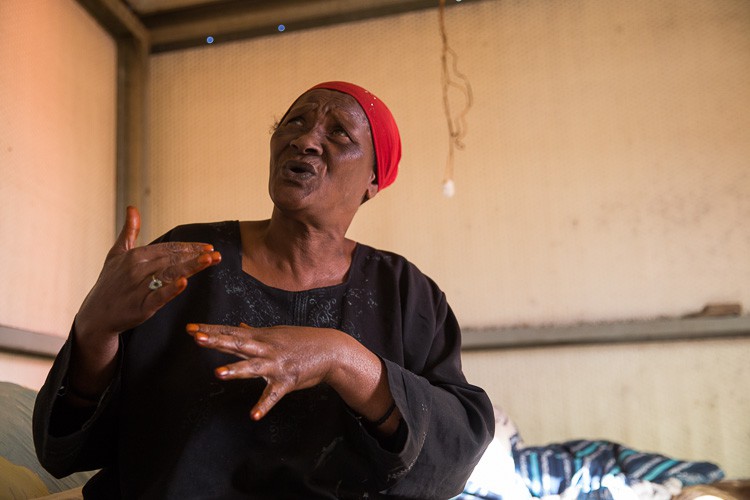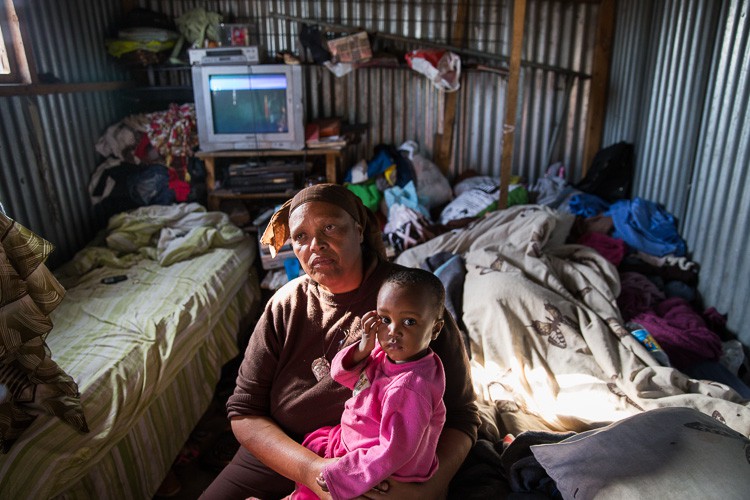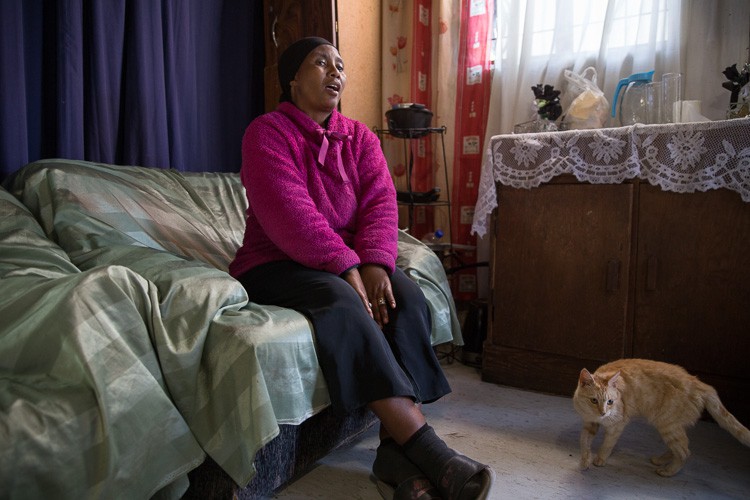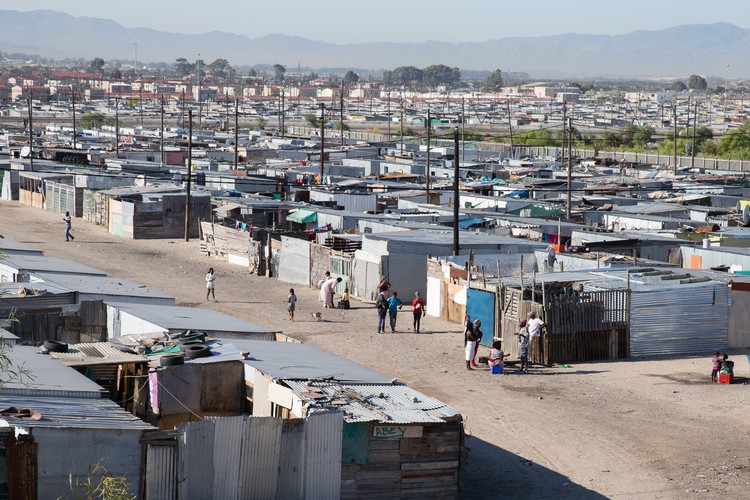“This is not a place for human beings”
Blikkiesdorp was supposed to be temporary, but residents are stuck there indefinitely
Blikkiesdorp, also known as “Tin Can Town”, is found tucked away and out of sight in Delft, about a 25km drive from Cape Town’s city centre. It was meant to be a TRA, the City’s abbreviation for Temporary Relocation Area, but it has been housing residents for ten years. It consists of 1,600 to 2,000 households living in tin shacks.
“This is not a place for human beings,” says Jane Roberts, who has been in Blikkiesdorp for eight years. Before, Roberts was one of the Symphony Way pavement dwellers and lived for two and half years on the street. “The road was a good place to stay,” she says.

Her home in Blikkiesdorp is tiny. A double bed takes up most of the space. She says she lives in constant fear of gangsters and break-ins. “You can’t go out. You can’t leave your house,” says Roberts. “People want to get out of here. They don’t want to live here. They say they don’t care where they are going to live, so long as they can get out of Blikkiesdorp.”
“After eight years it’s not temporary, it’s permanent,” says Roberts.

Maureen Philanders previously stayed at a shelter in Cape Town, but had to leave after three months. She relocated to Blikkiesdorp and thought that she would be here for only three years. She has been here for six years. She says her health is not good. “I’m so worried, because I think, where are the grandchildren and the children going to grow up?” Philanders asks. She lives with five children; one is her own child.
“You are not safe [here] in your own shack,” she says. Philander said she’d even considered moving into the Belhar graveyard.

Blikkiesdorp has no nearby hospital or police station. According to Estrolitha van Ballen, who has lived in Blikkiesdorp for seven years, the police and ambulance take a long time to arrive. “You phone the police, but they never pick up,” she says. “The crime is so high. During the night you can’t sleep. You must be alert.
We asked the City of Cape Town what plans it has for the residents of Blikkiesdorp, and if there’s a date for when they’ll be moved. Councillor Siyabulela Mamkeli, the City’s Mayoral Committee Member for Area Central, responded: “Any concrete proposals and information would be taken to the communities of Blikkiesdorp, Malawi Camp and Freedom Park first and at the appropriate time. We will follow our normal engagement processes.”
Support independent journalism
Donate using Payfast

Don't miss out on the latest news
We respect your privacy, and promise we won't spam you.
Letters
Dear Editor
This shocking state of affairs should not be allowed to continue!
I recently read that due to the "gentrification" of certain suburbs such as Woodstock and Obs. people who have lived there for more than twenty years and even sometimes their whole lives are being "relocated" to Delft
.....is apartheid still alive and well and operating in South Africa? Forced relocations being the order of the day, causing untold misery and sadness that some never recover from ? ..
How can this be allowed to happen in the 21st century?
Propaganda tells us how marvellous it is to live in a DA run province!
How are these people supposed to get to work once they are "camping" in iron shacks more than 25 kms. from the City centre.?
These are human beings we are talking about, people with feelings and emotions, dreams, hopes and desires just like you and I
Proper social housing should rather be a priority instead of making things "pretty" for the "haves" to the detriment of the "have nots"
It is high time the people running Cape Town had a huge shift in consciousness and change of their thinking processes to rectify this unacceptable inequality....
This whole story is driven by human greed and a sense of entitlement - shame on you!
Dear Editor
One would swear the Blikkiesdorp matter is a new one if you read this article, but it isn't. From the day myself and Felix Furtak were willing to be blockaded into one of the rooms in Junctions Road in Salt River, as gentrification gained momentum, the potential atrocities of Blikkiesdorp were already identifiable.
When the WC DA-led government sent trucks to evict people to Blikkiesdorp, a tiny handful protested. This kind of social engineering is aimed to contain our people and control them in a space where they implode as a collective and remain no meaningful counterweight to the status quo.
It is beyond irritating, frustrating, heartbreaking and painful to see more words, more photographs, hear more atrocities, but see minimal, if any, concerted, sustained and strategic action.
Dear Editor
This is the 2nd time I've read about Blikkiesdorp and it's the same story. It's surprising how the city of Cape Town can brag about the people choosing to retire there and in the province but forget about their own residents.
It's hurtful that in 2017, people are still without homes and there are no plans to house them. Must one have money to be considered a person worthy of a home in the City? Can the municipality provide answers to the community without using words such as 'normal engagement process'? It's insulting to the residents. And contrary to what the former DA leader Helen said, they aren't refugees.
GroundUp, please do follow up on this.
Dear Editor
The conditions at this 'temporary relocation township' are certainly a far cry from any acceptable public health standards. That applies to physical as well as mental health. Over and above the commonly accepted public health standards it falls far short of what is obligatory of the UN Convention of the Rights accepted and signed on our behalf by our then President Nelson Mandela. It is an embarrassment for the citizens our mother city.
© 2017 GroundUp. 
This article is licensed under a Creative Commons Attribution-NoDerivatives 4.0 International License.
You may republish this article, so long as you credit the authors and GroundUp, and do not change the text. Please include a link back to the original article.

